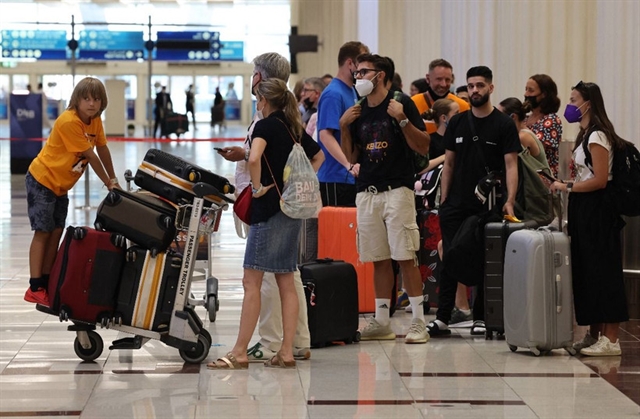 Economy
Economy

More expensive animal feed prices have eroded livestock companies’ profits in the first quarter of 2022.

|
| No Title |
HÀ NỘI — Higher animal feed prices have eroded livestock companies’ profits in the first quarter of 2022.
VNDirect Securities Corporation said that the Russia-Ukraine conflict had a negative impact on the animal feed industry as supplies of raw materials for animal feed production like corn, soybeans and wheat, are disrupted, causing prices to rise sharply.
The two countries are respectively the world's leading and third largest wheat exporter, accounting for one-third of the total trade of this commodity. Besides, Ukraine is the second largest corn exporter, accounting for 22 per cent of the world turnover.
As of early April, the price of imported corn at Cái Lân port, Quảng Ninh Province, reached VNĐ9,200-9,500 per kg (US$0.4-0.41 per kg), an increase of 20-25 per cent compared to the end of 2021 and up 50 per cent over the same period last year.
The average price of imported soybeans in the first quarter was $637.6 a tonne, up 18 per cent year-on-year, while the price of imported wheat also increased by 36 per cent to an average of $363.3 a tonne.
Under higher feed prices pressure, live hog prices also posted an increase, but not significantly. The domestic live pig market in March fluctuated around VNĐ52,000-57,000 a kg, up 11-14 per cent compared to the beginning of the year, while the farm-gate price of chicken declined by 11 per cent. However, compared to the same period last year, live pork prices fell by 23-27 per cent, while chicken prices climbed by 19 per cent.
Due to the pressure, many livestock enterprises reported a sharp decrease in profits or even losses. Dabaco Group (HoSE: DBC) announced that its first quarter net revenue increased slightly by 13.3 per cent on-year to VNĐ2.8 trillion. But the sharp rise in cost of goods sold caused its gross profit to dip by 60 per cent to VNĐ254 billion. With other expenses did not fluctuate much, profit after tax was only VNĐ8.6 billion, equal to 2.3 per cent of the same period last year. This is Dabaco's lowest profit since the second quarter of 2019.
The company said that the complicated developments of the Russia-Ukraine conflict had affected the supply chain of input materials such as corn, wheat and soybeans, causing a serious shortage. The disruption of the supply chain and obstacles due to the pandemic caused the cost of animal feed to inch higher, while the price of livestock products did not increase.
Similarly, Hòa Phát Group (HoSE: HPG)’s agricultural segment also reported poor performance in the first quarter of this year. Of which, revenue from agricultural businesses fell 27 per cent over last year to VNĐ1.6 trillion. It lost nearly VNĐ56 billion, while in the first quarter of 2021, the agricultural segment brought in profit of VNĐ392 billion.
As Masan MEATLife Corporation (UPCoM: MML) separated its animal feed segment, the company’s net revenue in the first quarter dropped sharply to VNĐ931 billion from VNĐ4.7 trillion last year. However, the parent company's profit after tax doubled to VNĐ274 billion thanks to financial activities.
If only taking the meat business into account, the first quarter's revenue recorded a slight decrease of 5.4 per cent due to the decrease in the price of pork, while sales volume increased.
Accordingly, sales of branded pork reached VNĐ351 billion, down 4 per cent, and revenue from farm pigs reached VNĐ197 billion, down 57 per cent due to a slump of 25 per cent in the pork price. Meanwhile, sales of branded chicken meat (3F Viet) were up 31.4 per cent to VNĐ373 billion, thanked to a rise of 16.5 per cent in sales volume and a jump of 13.8 per cent in price.
Masan MEATLife’s earnings before interest, taxes, depreciation and amortisation (EBITDA) was negative VNĐ28 billion, while that of the same period last year was positive VNĐ498 billion.
The company’s leader said that pork production has entered a stable zone in the first quarter and is expected to increase by the end of the year. Masan MEATLife aims to improve its EBITDA, expand businesses through sustainable supply development, increase capacity utilisation, bring products into the WinCommerce system, and diversify its processed meat portfolio.
A report of the Ministry of Agriculture and Rural Development said that live hog prices in regions across the country in April tended to increase again due to the reopening of restaurants, schools and factories, boosting consumption, while the supply decreased and prices of animal feed climbed. Chicken and egg prices also edged higher as consumer demand gradually recovered. — VNS




